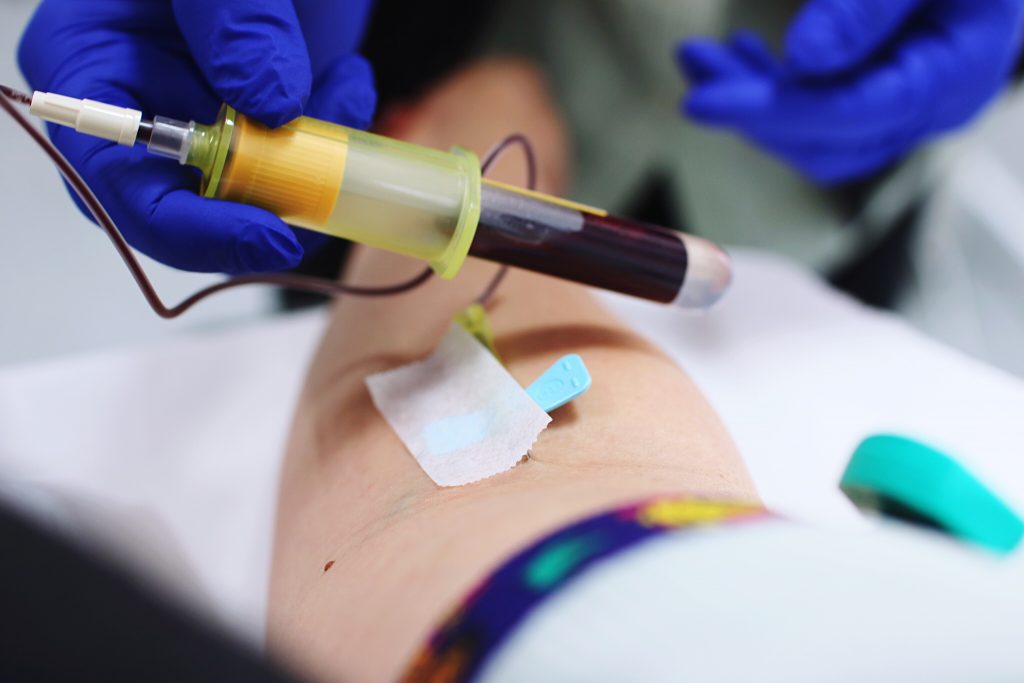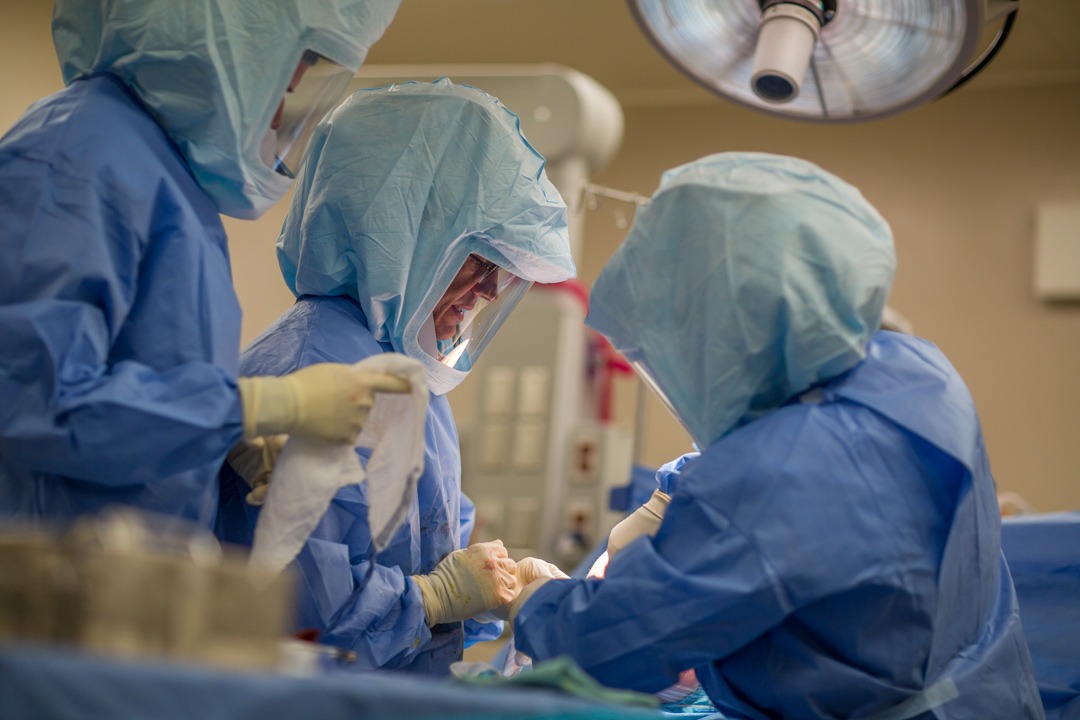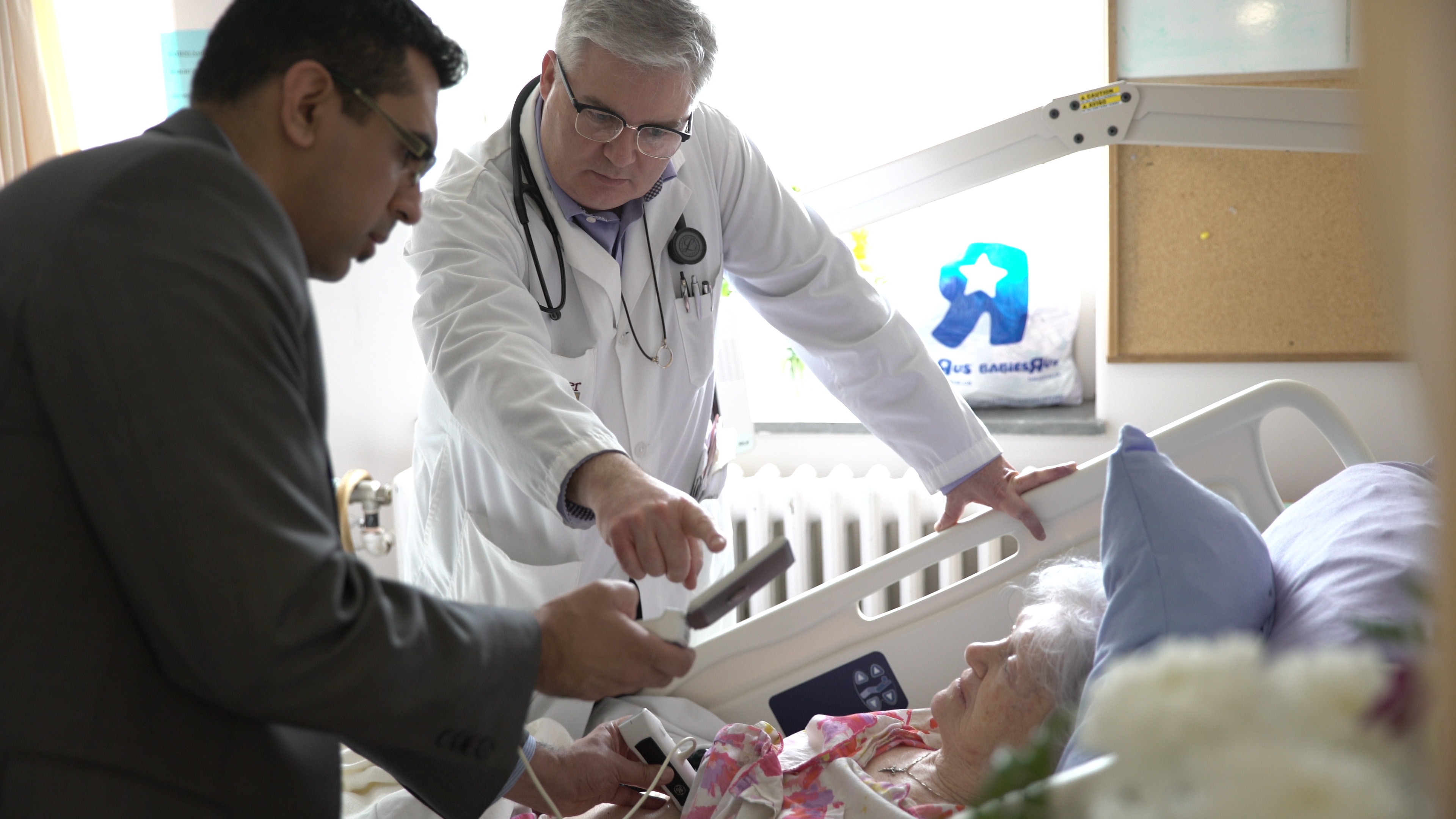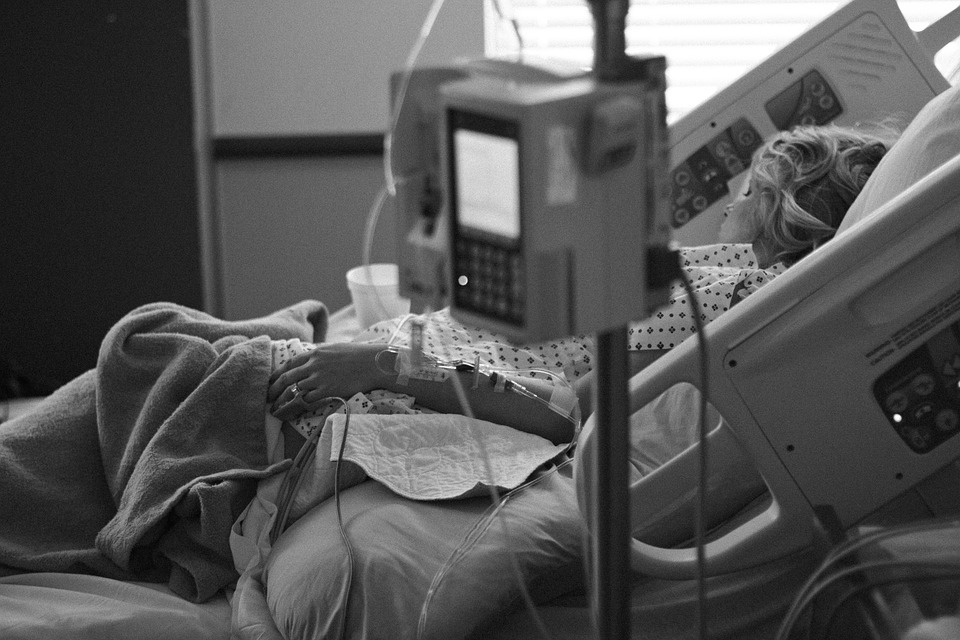
A blood test can identify complications after heart surgery
A large international study out of the Population Health Research Institute (PHRI), a joint institute of Hamilton Health Sciences (HHS) and McMaster University, has found an important new benchmark from a common blood test to measure the risk of heart complications or death after heart surgery.
Since any type of surgery has the potential to cause damage to heart tissue through blood clot formation, long periods of inflammation or bleeding, this blood test has already been studied and proven effective in identifying heart complications after non-heart surgeries like hip replacement and bowel surgery. However, it hadn’t been analyzed yet in patients having heart surgery.
“For the first time, we have a marker that is fast and reliable for the monitoring of these patients after cardiac surgery.”

Dr. PJ Devereaux
“Operating on the heart itself means that the markers will be much higher than with non-cardiac surgery patients, so we needed to undertake a study in this patient population separately,” says the study’s lead investigator, Dr. P.J. Devereaux.
The blood test looks at the levels of a protein called troponin which is found in the heart muscle. This study measured the troponin levels of patients undergoing open heart surgery or coronary artery bypass grafting, which is often performed as a less invasive surgery. Levels were recorded the day before surgery and daily for the first few days following surgery.
The new benchmark
“We found that the levels of troponin associated with an increased risk of death within 30 days were 200 to 500 times higher than troponin levels that surgical teams are currently told defines the risk of a patient having one of the most common complications after heart surgery – myocardial injury, a heart muscle injury associated with increased deaths,” said Devereaux, who is also a cardiologist at HHS, senior scientist at PHRI and professor of medicine and health research methodology at McMaster University.
The study found that thirty days after heart surgery, 2.1% of patients had died and 2.9% had experienced a major vascular complication, such as heart attack, stroke, or life-threatening blot clot.
These results show that under the current guidelines, many patients who have been identified as high risk for complications or even death wouldn’t actually be high risk at all. If adopted into practice, this new benchmark will allow for more accurate monitoring of patients.
The study involved 15,984 adult patients with an average age of just over 63 years undergoing cardiac surgery. Patients were from 12 countries, with more than a third of the countries being outside of North America and Europe.

Dr. André Lamy
“This study is a landmark for the health teams taking care of patients after cardiac surgery. For the first time, we have a marker that is fast and reliable for the monitoring of these patients after cardiac surgery,” says Dr. André Lamy, a study investigator, heart surgeon at HHS, PHRI scientist and professor in McMaster’s department of surgery.
In addition, the blood test results can influence pre-surgical medical consultations based on whether or not there is a risk for cardiac complications.
The VISION Cardiac Surgery study was funded by Canadian Institutes of Health Research, McMaster Surgical Associates, PHRI internal grant award, HHS, Abbott, Ontario Strategy for Patient Oriented Research, and Hamilton Academic Health Sciences Organization.



